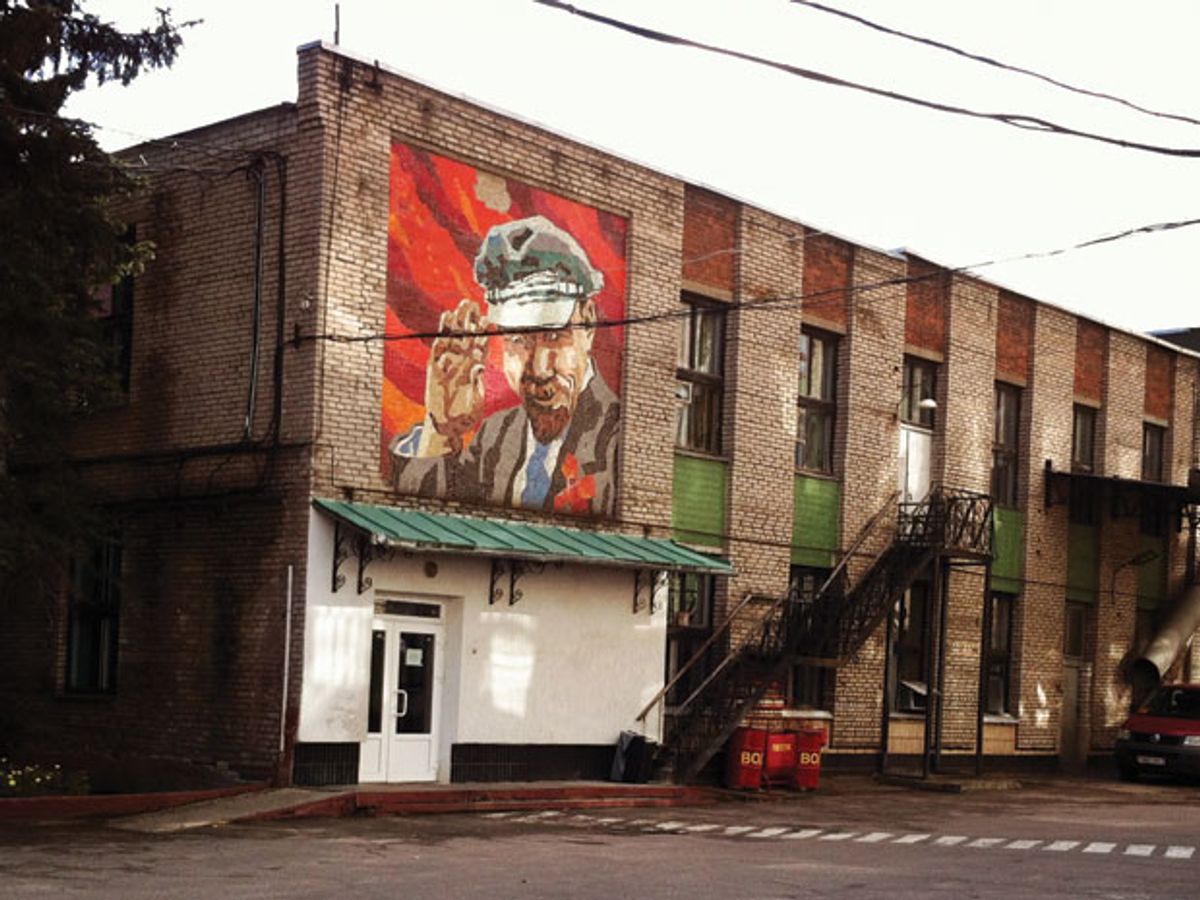In a quiet lane in Belarus’s capital, across from playgrounds and tower-block apartments, sits an old textile factory with a courtyard mural of a smiling Vladimir Lenin. Upstairs is something unexpected—60 programmers and artificial-intelligence researchers implementing algorithms and building databases for a sprawling semantic-search platform.
This is what Ken Klapproth calls the “factory” for the Invention Machine, a 20-year-old software firm in Boston (recently acquired by Colorado-based IHS) that specializes in natural-language processing. Klapproth leads product marketing for Invention Machine and is a solid supporter of Minsk’s IT scene.
Over the last six years, software exports from Belarus have soared 2000 percent in light of a free economic development zone, with 80 percent of them going to the European Union and the United States. Alexander Martinkevich, deputy director of Minsk’s 50-hectare Hi Tech Park, says that half the zone’s participants are domestic firms and half were built from foreign investment. The growing technology industry in Belarus is becoming richly varied: A visitor can find code farms for established Western companies, bootstrapping developers working with start-up partners both foreign and domestic, and homegrown outfits like the successful gaming shop behind Massive Assault.
“The Belarusian IT industry stands on the shoulders of software outsourcing companies” that sprang up in the 1990s and 2000s, says Vitalina Turlo, head of marketing and business development for Applied Systems, an industrial automation firm in Minsk. “But the recent trend is much more toward the emergence of highly successful product developers and companies.” Marketing for these new companies remains a weak spot, she says, but they are getting better at it.
Often thought of in the West as a relic of the Cold War, Belarus actually owes some of its success to that conflict, says Jim Todhunter, who recently stepped down as Invention Machine’s chief technology officer. “In the early days of artificial intelligence, natural-language processing was interesting because the United States and the Soviet Union wanted to spy on one another,” he says. “So the hotbeds for this development for these technologies were in these two countries.” Invention Machine was founded in Minsk in 1992 and took advantage of the local natural-language-processing expertise. The firm’s core product is a custom semantic-search engine that can crawl through a vast variety of a client’s internal documents and external information, including patents, scientific research papers, and standards data. It then serves up categorized lists of specialized information based on natural-language queries. Klapproth says the firm keeps its R&D operations in Minsk because its mostly Belarusian developers—even the recent graduates—are steeped in language algorithms.
What’s happening now is broader than just local residents capitalizing on a niche expertise. When controversial Belarusian president Alexander Lukashenko—the country’s leader since 1994—decided in 2005 to establish the Belarus Hi Tech Park on the outskirts of Minsk, the barriers to getting a spot there were low and the terms generous. Any software development company—whether physically quartered in the park or anywhere else in the country—is exempt from all taxes and customs duties, and employees get a fixed tax rate of 9 percent on personal income. “The whole territory of the country may be regarded as the park,” Martinkevich says. “Legal conditions adopted for the park are valid within all of Belarus.” Some 118 tech firms now call the place home, and new buildings are under construction.
That environment has helped to attract new business. Viber Media, for example, a fast-moving mobile app competitor to Skype, ballooned to 100 million users in two years from its base in Minsk, with its Israeli-born developers relying on Belarusian staff to keep its service running as it quickly scaled up.
When Todhunter arrived in Minsk a decade ago, it was a place where residents spent the winter shivering behind thin windowpanes. The city Todhunter is leaving is a curious place: On a single winter evening, you can find a leading poet chagrined about not being able to perform his songs in public and a Russian-speaking thrash band with a Japanese drummer in a squatter club. But the city is also now more vibrant, boisterous, confident.
